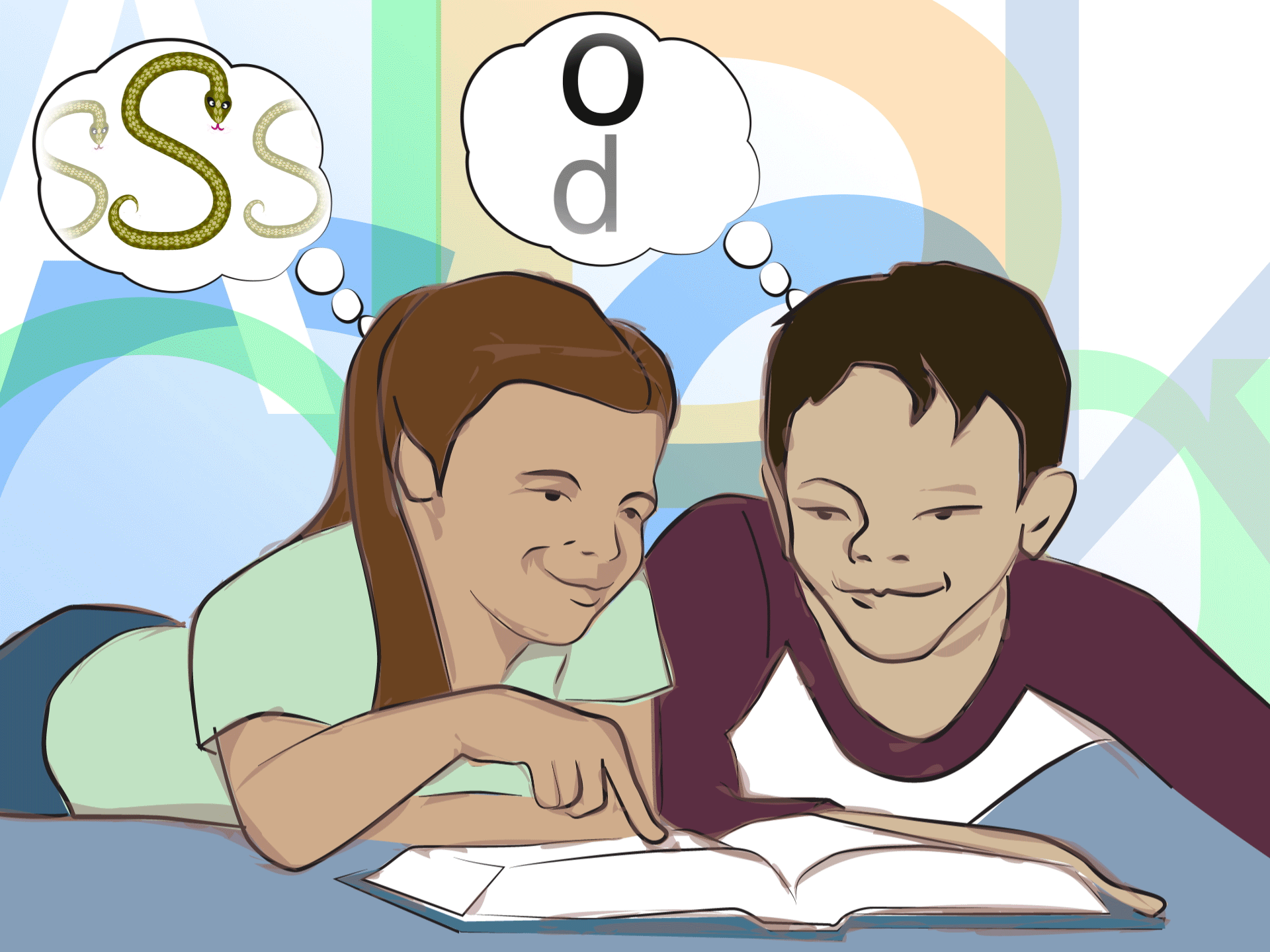
What can we do to help children like Chris, so that no child falls behind their peers? Help Chris break down words and phrases into their sounds. Emphasize that letters have names that are different than the sounds they make. Start with the simple phoneme-letter combinations like “k” = /k/. Then progress to the harder combinations like how the letters “o,” “u,” “g,” and “h” make the “oh” sound in dough. Break down progressively longer words, merging into phrases, sentences, and short stories. All children, regardless of where they start, should follow a similar progression. Chris might need extra help and practice to grasp the concept that words are composed of individual sounds and that these sounds can be represented with letters.
Learning the rules of written language is the heart of becoming a skilled reader. Even though Alex, the emerging reader, might not need as much emphasis on learning about sounds and letters, practice will still help build her foundational skills. Phonics-based curricula have the reputation of being dry. But research tells us that mixing it with other lessons and activities in the classroom is a great way to teach these important skills!
Check out the links to resources at the end of this module to learn more about phonics-based instruction.
-
- Dyslexia
- a learning disability characterized by poor spelling and difficulties with word recognition and word decoding. It is unrelated to intelligence, motivation, or school experience
- Explicit instruction
- systematic and direct teaching that takes into account students’ prior knowledge
- Phonics-based reading instruction
- teaching focused on how letters represent sounds and how words can be sounded out by knowing letter-sound correspondences
- Plasticity
- the brain’s ability to change as a result of experience